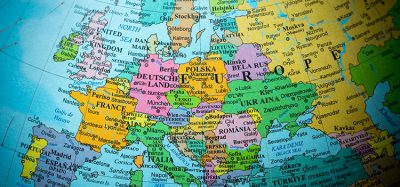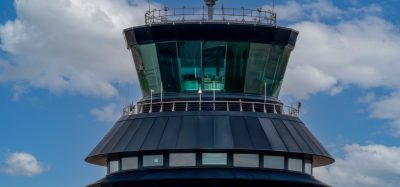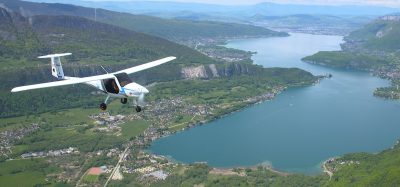Poland is ready
- Like
- Digg
- Del
- Tumblr
- VKontakte
- Buffer
- Love This
- Odnoklassniki
- Meneame
- Blogger
- Amazon
- Yahoo Mail
- Gmail
- AOL
- Newsvine
- HackerNews
- Evernote
- MySpace
- Mail.ru
- Viadeo
- Line
- Comments
- Yummly
- SMS
- Viber
- Telegram
- Subscribe
- Skype
- Facebook Messenger
- Kakao
- LiveJournal
- Yammer
- Edgar
- Fintel
- Mix
- Instapaper
- Copy Link
Posted: 29 March 2012 | Mark Glover, Commissioning Editor, International Airport Review | No comments yet
The Ukraine and Poland will be jointhosting the European Football Championships in June, creating a range of operational challenges on the countries’ airport infrastructures. Mark Glover, from International Airport Review spoke to Rafal Marczewski, the National Airport Controller of Poland and the Polish State Enterprise’s Representative for UEFA EURO 2012, about how the country’s airports are preparing for this festival of football.
Mark Glover: Is Poland prepared for the increased rise in passenger numbers in the summer?
Rafal Marczewski: Our challenges began even before the teams had qualified for this tournament, as we did not know which teams would be playing where and when and therefore how many passengers or fans of a certain country would be attending. We liaised closely with our colleagues at UEFA (Union of European Football Associations) and also internally between all of the major airports. We obviously know that the passenger numbers will increase, so we had to look beyond our main airports for traffic and include a range of ‘supporting’ airports. These will be utilised if the infrastructure, currently under construction, is late, or if there are problems with capacity or cargo. So along with the four main airports, we now have four supporting airports. Warsaw Airport will be supported by Lódź Airport, Gdańsk by Bydgoszcz, Poznań by Zielona Góra and Wrocław by Katowice.
The Ukraine and Poland will be jointhosting the European Football Championships in June, creating a range of operational challenges on the countries’ airport infrastructures. Mark Glover, from International Airport Review spoke to Rafal Marczewski, the National Airport Controller of Poland and the Polish State Enterprise’s Representative for UEFA EURO 2012, about how the country’s airports are preparing for this festival of football.
Mark Glover: Is Poland prepared for the increased rise in passenger numbers in the summer?
Rafal Marczewski: Our challenges began even before the teams had qualified for this tournament, as we did not know which teams would be playing where and when and therefore how many passengers or fans of a certain country would be attending. We liaised closely with our colleagues at UEFA (Union of European Football Associations) and also internally between all of the major airports. We obviously know that the passenger numbers will increase, so we had to look beyond our main airports for traffic and include a range of ‘supporting’ airports. These will be utilised if the infrastructure, currently under construction, is late, or if there are problems with capacity or cargo. So along with the four main airports, we now have four supporting airports. Warsaw Airport will be supported by Lódź Airport, Gdańsk by Bydgoszcz, Poznań by Zielona Góra and Wrocław by Katowice.
The quarter-finals and the semi-finals of the tournament will be held in Warsaw and this will create an extra need to offer parking for the smaller aircraft that will be coming into the airport. This is because we do not like to have these types of smaller aircraft within the ‘larger’ airports during the tournament, as we do not have airspace blocked, or parking positions available on the tarmac. One of the ways in which we are coping with this extra ‘smaller’ air traffic, is the new Modlin Warsaw Airport (featured in IAR_1_2012) which will open in May. It is 30km from Warsaw, in a great location, with a great runway and excellent operations and it will certainly be used in some capacity during EURO 2012.
We know that there will be 13 competing teams staying in various parts of Poland so of course, our other airports will also be in use. Kraków Airport will be busy as the Dutch, Italian and English teams are staying in the city. The Danish team will be staying in Szczecin, so that airport will have to be utilised also. It is important that all involved airports work together when dealing with the increase in air traffic and passenger numbers, particularly when sharing operational information.
MG: You’ve mentioned the role of the supporting airports, how important is their role?
RM: Initially, we will utilise the main airports, these will serve the regular and normal traffic. The supporting airports will be used for overflow traffic and smaller aircraft, as previously mentioned.
MG: I have read that you aim to maintain high standards in services and efficiency throughout the Championships. Can you define ‘efficiency’?
RM: We have several projects still to finish before the tournament begins in the summer. Warsaw Airport’s modernisation of its existing terminal has been finished, and Gdańsk will be completed in April 2012, where the ‘airside’ section of the project is already finished. These completed projects will obviously contribute to our overall efficiency.
One of the ways we are working to achieve ‘efficiency’ is by allocating an ‘airport forum’ to each involved airport. These forums consist of airport representatives, the police and emergency services, security and border control, fuel companies and of course the airlines. This way we can garner expertise and experience from each of the important sectors. I like to see it as a local CDM (Collaborative Decision Making) process, where people will work together towards the preparation that is essential to making this event a successful one.
We will be co-ordinating with all the main airports on a daily basis beginning in the summer, we then want this to continue beyond the tournament; ultimately we want to create perfection within our airside operations.
MG: How will security be upgraded to cope with the increased passenger influx?
RM: Of course, security must be 100 per cent. From our perspective, quality of the security process is the first goal. This will enable us to improve the process of the passenger flow through the control areas at each airport. To achieve this the security consoles will be bigger and more expansive.
We will be employing more staff and of course initiating the appropriate training. We will be focusing on the obvious issues of languages and also the process of detecting suspicious behaviour.
MG: This tournament is a great event for Poland and the country’s airports. Are you hoping for legacy?
RM: Oh yes! The legacy will hopefully go on long after the event but we will know the outcome shortly after the tournament has finished. I am confident that with our level of preparation we will create something very special, not just for now but something that is beneficial for the future.
MG: I understand that you are big football fan. Who do you think will win the tournament?
RM: I think Germany will win it; they are playing some very good football at the moment. And then of course, you cannot rule out Spain or Holland. England does have a chance but I’m not sure if they will win it!
Biography
Rafal Marczewski has been the General Director’s Representative for UEFA EURO 2012 at the Polish Airport’s State Enterprise since January 2010, overseeing the country’s airport operations during this major sporting event.

















